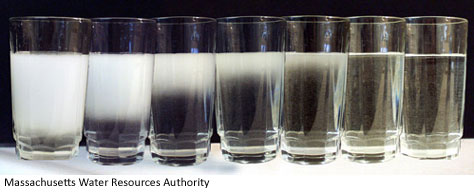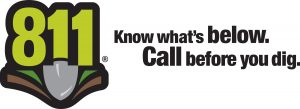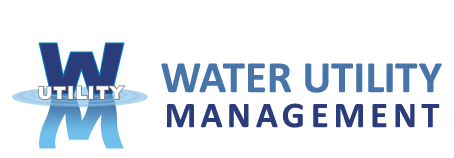Frequently Asked Questions
Can’t find what you’re looking for? Please call or email our office for further assistance.
How do I apply for service?
New customers that are served by Water Utility Management can visit our Customer Portal to apply for service. If unable to complete the user-friendly webforms on the portal, please visit waterga.com/customer-documents/.
How do I apply for a leak repair adjustment?
Customers that are served by Water Utility Management can visit our Customer Portal to apply for a water leak repair adjustment if satisfying all of the requirements. If unable to complete the user-friendly webforms on the portal, please visit waterga.com/customer-documents/.
Where does my water come from?
The source of 99% of the water for our customers is the Floridan Aquifer. The Floridan aquifer is hundreds of feet underground and confined by a thick layer of clay. Geologists have estimated that the water enters the aquifer around the fall line (a geological feature where the coastal plane gives way to higher elevations, roughly on a line between Macon and Augusta), and that the water we access may have entered the aquifer over a thousand years ago. The Floridan aquifer is constantly recharging as more water enters the aquifer, replacing the water that is pumped out. Water that is not pumped out continues a slow migration to the South and East, eventually discharging under the Atlantic Ocean.
The water in the aquifer is characterized as “groundwater.” Groundwater from the Floridan aquifer is some of the cleanest on earth due to its age and natural filtration process that occurs as the water seeps through various levels of the earth before entering the aquifer. Treatment plants that treat surface water (from lakes and streams) use an artificial replication of this filtration process to make their water clean enough to drink. The filtered groundwater is very clear and clean, but has a high mineral content, as many minerals dissolve themselves in water. The water is tested regularly to ensure all the mineral levels are safe to drink. The water in the aquifer is protected from outside impurities, because the aquifer is confined by a thick layer of clay. To comply with regulations, and to ensure the clean water stays clean all the way to your home, we add monitored levels of chlorine to the water.
Why do I have rusty water and what can I do about it?
Rusty water is usually due to a water main break or a recent hydrant flushing. The sudden opening stirs up sediment and rust. Simply run the cold water tap until it is clear, contact our office if the problem persists.
How do I know my water is safe?
To ensure your water complies with the Safe Drinking Water Act, each community water system operates under a permit. Each permit is issued and overseen by the State of Georgia’s Environmental Protection Division (EPD). The EPD requires screening for contaminants, radiation, bacteria, and other regulated properties. These requirements are more stringent than those the FDA puts on bottled water.
We conduct laboratory tests of the water every month, and we publish a summary of all the test results annually, called a Consumer Confidence Report (CCR). CCRs are available through this website -click on your water system on the Interactive Map , to download a .pdf.
Why does my drinking water look cloudy sometimes?
Once in a while, you get a glass of water and it looks cloudy; maybe milky is a better term. After a few seconds it miraculously clears up! The cloudiness might be caused by the water in the pipes being under a bit more pressure than the water in the glass, but is more likely due to tiny air bubbles in the water. Like any bubble, the air rises to the top of the water and goes into the air above, clearing up the water. Cloudy water, also known as white water, is caused by air bubbles in the water. It is completely harmless.
It usually happens when it is very cold outside because the solubility of air in water increases as water pressure increases and/or water temperature decreases. Cold water holds more air than warm water. In the winter, water travels from the reservoir which is very cold and warms up during its travel to your tap. Some of the air that is present is no longer soluble, and comes out of solution.
Also, water pressure has something to do with it. The water in the pipes is pressurized to a degree (which helps to get the water all the way from the water tower to your home). Water under pressure holds more air than water that is not pressurized. Once the water comes out of your tap, the water is no longer under pressure and the air comes out of solution as bubbles (similar to a carbonated soft drink). The best thing to do is let it sit in an open container until the bubbles naturally disappear.

Why does my water sometimes smell like eggs?
Water is a ‘Universal Solvent’. As groundwater filters through the earth, and as it flows in the aquifer, it dissolves minerals. Sulfur is a mineral contained naturally in the aquifer, and it gives the water that ‘egg’ smell. It is entirely safe to drink and use, but it can be unpleasant. Luckily, the chlorination that we add to the water often masks the taste and smell of the sulfur. If your water tastes or smells like sulfur and you don’t like it, give our office a call and we will send someone to increase the chlorine in the water, and flush the water mains if necessary.
I really dislike the chlorine taste in water. How can I get rid of it?
The simplest and most economical way is to add a slice of lemon to your drinking water. Another method is to fill a clean pitcher or container with cold tap water and leave it uncovered overnight for the chlorine content to dissipate. Please call our office if the taste borders on extreme or abnormal and we will promptly send an operator to investigate.
What if there is sediment in my water?
Water is a ‘Universal Solvent’. As groundwater filters through the earth, and as it flows in the aquifer, it dissolves minerals. Because the aquifer is primarily made of limestone, a lot of calcium dissolves into the water. Sometimes the calcium builds up in pipes and fixtures (especially water heaters) and can settle out of the water like sand. The sediment is easily removed by periodic flushing and cleaning. If you have questions, or cannot resolve this on your own, please call our office and we will send a technician to investigate and to flush water mains as necessary.
Do I have "Hard Water"?
Water is a ‘Universal Solvent’. As groundwater filters through the earth, and as it flows in the aquifer, it dissolves minerals. Because the aquifer is primarily made of limestone, a lot of calcium dissolves into the water. ‘Hardness’ is a measure of calcium and manganese dissolved in the water. The water from the Floridan Aquifer is hard water. Hard water is not dangerous, and has no adverse health effects. It does, however, create limescale, or the white residue that dries on wet surfaces, and sometimes coats or clogs plumbing fixtures. Hardness (calcium) can be removed with an in-home water softener, and some people prefer softer water. Otherwise, fixtures can be cleaned with over-the-counter products to minimize the effects of hardness. Sometimes the calcium builds up in pipes and fixtures (especially water heaters) and can settle out of the water like sand. The sediment is easily removed by periodic flushing and cleaning.
Can I pay my bill using a third-party payment website?
The only bill pay website directly affiliated with the Company is Here. If you prefer to pay your bill online, our Customer Web Portal is our official bill payment portal and the best way to ensure that your bill will be paid on time.
Please be advised that we are not affiliated or partnered with third party bill payment services such as Doxo. These companies may charge additional “convenience” fees to customers. We also cannot control when we receive payments from these companies, and this may result in a late payment fee being applied to your account – even disconnection due to non-payment.
We urge our customers to make their online bill payments from the Customer Web Portal to avoid these consequences.
How can I avoid having my water shut off because of a delinquent bill?
The easiest way is to pay the bill by the due date. We have multiple ways to pay, such as online payment options, an Auto Pay Program to make it simple, and an option to pay by phone, in person through our customer lobby or Payment Drop Box, or even through the mail. If you are already past the due date, please call our office to make your payment and avoid service shut-off.
If my service has been interrupted and my meter has been barrel locked at my service location, will I still be billed during the next billing cycle?
Yes, until an account is closed and a final bill is generated, all customers are responsible for paying the bi-monthly base rate. Please contact out office if you’d like to close your account or have further questions on the process.
What is the current balance due on my account?
Please login to our customer portal to see the current balance due on your account, view past statements, adjust payment preferences, and sign up for paperless e-bills if preferred.
Don’t feel like logging in? No problem, simply use our Quick Pay option. You can also contact our Customer Care team and give your account number or address, we’ll be happy to provide the information you need.
How do I get a final water bill for the sale of the property or I have a tenant moving and want to give him a final bill?
Call our office at 912-352-9339 to make arrangements for a final meter reading and a Customer Care Representative will guide you through the process.
Why is my new water bill so high?
The usual cause is a leaking toilet or use of an irrigation system. Try adding a few drops of food coloring in the toilet tank when it is full. Do not flush and let it sit for an hour. If the color appears in the bowl without flushing, then you have a leak. A small leak can easily amount to 700 gallons per month! Please ask about complimentary dye tabs for toilet leak checks next time you visit our office. For more information on how to proceed after receiving a high water bill, please visit our High Water Bill page. If you think something doesn’t add up or would like more information, please call or email our office – Customercare@waterga.com / 912-352-9339.
Do I have a leak?
It’s a good idea to routinely check for water leaks in your water/plumbing system. These checks can save water and prevent an unexpected high bill or other problems. Please be advised that all leaks after the water meter are the homeowner’s responsibility to repair. If a water leak is found and repaired, the completed invoice may be submitted to our office for a Water Leak Adjustment.
How is conservation reflected in my water rates?
Water Utility Management utilizes a conservation-based rate structure. The majority of our customers pay a base rate and then are billed for consumption based on their tier of usage. The price per unit of consumption increases as users consume more water and move into the higher rate blocks. The pricing and rate structure are designed to ensure efficient use and to minimize water waste.
Why do I need to conserve water?
It is vital to protect and conserve water as it is a precious, limited resource. Did you know that only 1% of all of the world’s water is drinkable? Water is used for basic necessities, such as sanitation, cooking, and for optional uses such as lawn watering, car washing, and filling of swimming pools. WUM and other water utilities must follow certain legal limits for how much water they can draw from their supply sources. For Southeast Georgia, we are located in the Cone of Depression, making water conservation even more important.
Increased population pressures place a greater demand on water resources. Conserving water means more water is available in the environment for fish and wildlife. Using water wisely ensures that we have a sufficient water supply for ourselves and for future generations.
How do I report street light outages?
Even though we may bill you for streetlights, your local power company maintains them. Please report any streetlight issues as they occur.
How can I prevent my pipes from freezing?
There are many ways to help prevent your water pipes from freezing in extreme weather.
Some suggestions include:
- Keeping the water meter area or pipes exposed to outside walls heated.
- Providing ventilation to pipes allowing warmer air to circulate around them.
- Insulating your pipes.
- Caulking and sealing any openings near your water pipes.
- Keeping some tap water running. (Moving water is more difficult to freeze, but this will affect your bill.)
What do I need to do before I dig on my property?
 Before you dig on your property you should call 811 to locate underground utilities prior to construction activity. Local utility companies will respond with in 48 working hours to mark the location of the utilities at no charge to the customer. This will prevent any lines from being damaged during construction. The “locate” marks are temporary and will disappear after some time. For more information, visit our Call Before You Dig webpage.
Before you dig on your property you should call 811 to locate underground utilities prior to construction activity. Local utility companies will respond with in 48 working hours to mark the location of the utilities at no charge to the customer. This will prevent any lines from being damaged during construction. The “locate” marks are temporary and will disappear after some time. For more information, visit our Call Before You Dig webpage.
Helpful Tip:
Read your meter periodically and record the results! This helps with water conservation practices and in identifying water leaks ahead of time.
Bill Higher Than Normal?
Download our Leak Check document for more information on checking for household leaks. Please contact our office if anything seems unusual, we are happy to help!
